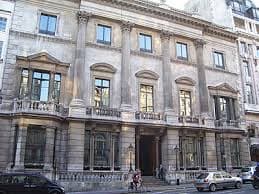Crockfords Wins Again in Phil Ivey ‘Edge Sorting’ Baccarat Case
London’s Crockfords Casino has triumphed for the second time in its legal battle against professional high-stakes gambler Phil Ivey, when Court of Appeal of England and Wales Judge Mary Arden upheld an earlier High Court ruling that declared that Ivey and a gambling companion had cheated when they used a card-identification technique called “edge sorting” to win £7.7 million ($9.6 million) at Crockfords in 2012.
 Crockfords had refused to pay Ivey his winnings at punto banco, a form of baccarat, instead refunding his initial bankroll deposit, which in turn led Ivey to sue the casino. Crockfords won the initial ruling in 2014, though Ivey and his legal counsel succeeded in obtaining the right to appeal.
Crockfords had refused to pay Ivey his winnings at punto banco, a form of baccarat, instead refunding his initial bankroll deposit, which in turn led Ivey to sue the casino. Crockfords won the initial ruling in 2014, though Ivey and his legal counsel succeeded in obtaining the right to appeal.
The legal loss for Ivey comes less than two weeks after Ivey was ruled to have violated New Jersey [US] gaming law in a similar case pitting the globally-known American poker pro against Atlantic City’s Borgata casino. In that case, Ivey and his sharp-eyed companion, Cheung Yin Sun, had won $9.626 million at the Borgata’s nosebleed mini-baccarat tables, over four different 2012 sessions.
Ivey and Sun subsequently admitted using the controversial card-identification method in court depositions, though protested that their actions were not illegal. Nonetheless, both the UK and US legal systems ruled against Ivey and Sun’s scheme, in both cases deciding that the pair had changed the rules and odds of the game through the complicated ruse, which resulted in Sun being able to identify the top card in the shoe at the start of each hand, thus giving Ivey a significant betting edge.
The Crockfords and Borgata cases differ in that Crockfords never paid Ivey his disputed winnings, leading him to sue the Genting-owned casino. In the US case, the Borgata paid Ivey the $9.626 million, then launched the clawback action when it learned of the Crockfords matter. Ivey and Sun also admitted to using the same scheme in other casinos in Australia, Canada, and elsewhere in the US.
Ivey’s English court counsel, Matthew Dowd of Archerfield Partners LLP, issued a statement, saying, “The Court of Appeal’s decision leaves the law totally unclear as to what constitutes cheating at gambling. Four judges have looked at this issue now and none of them have been able to agree on the correct interpretation of section 42 of the Gambling Act. It essential that the law is clarified and in light of today’s decision we are seeking permission to appeal to the Supreme Court.”
Added Ivey, “This decision makes no sense to me. The trial judge said that I was not dishonest and the three appeal judges agreed but somehow the decision has gone against me. Can someone tell me how you can have honest cheating? I’d like to add that I am very grateful to Lady Justice Sharp who decided that the trial judge was ‘wrong’ to decide that I had cheated.”
On the flip side, Genting U.K. president and chief operating officer Paul Willcock said, in a separate statement, the ruling “vindicates the steps that Crockfords has taken in this matter. Crockfords has acted fairly and honestly at all times and we are therefore pleased that the Court of Appeal has held that the decision not to pay out to Mr. Ivey was the correct one.”
Ivey technically retains the right to appeal the latest decision to the Supreme Court of the United Kingdom. However, the odds are long against a successful acceptance of the case and a winning appeal, making it a tough bet for one of the world’s best-known, self-described “advantage” bettors.





